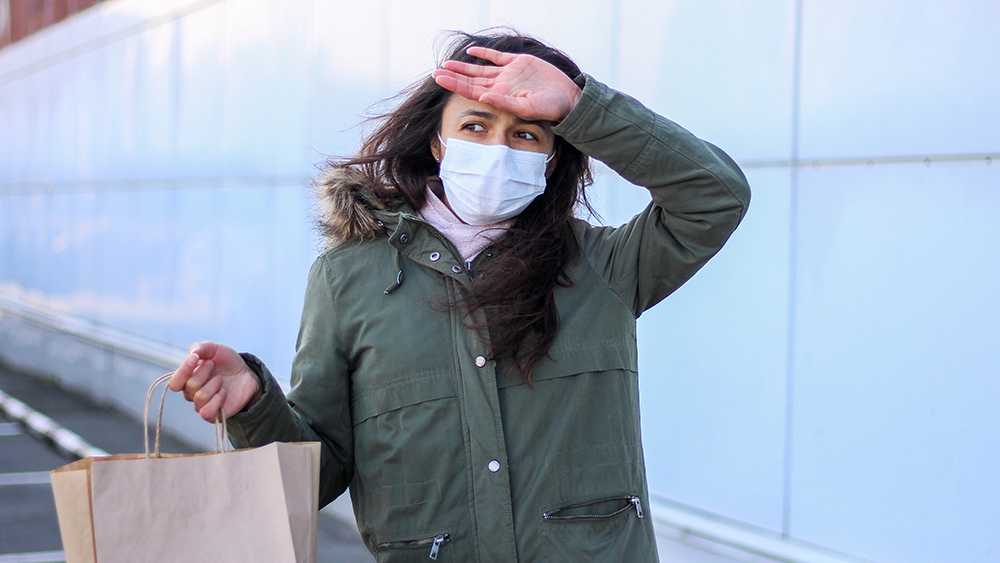
Advertisement
The government of Turkmenistan has banned any use of the word “coronavirus” in the country in a radical move to suppress any information about the global pandemic. According to the Turkmenistan Chronicle, a rare independent news source in this tightly controlled Central Asian nation, the country’s Ministry of Health has recently distributed brochures to hospitals, schools and workplaces about the prevention of viral diseases, but has omitted any mention of the coronavirus.
Reports from the Radio Free Europe / Radio Liberty correspondents stationed in Ashgabat, the Turkmenistan capital, revealed that police officers in plainclothes are arresting people who are caught wearing face masks or discussing the pandemic in a public location.
“The Turkmen authorities have lived up to their reputation by adopting this extreme method for eradicating all information about the coronavirus,” said Jeanne Cavelier, the head of the Eastern Europe and Central Asia desk of the media rights group Reporters Without Borders (RSF) in a statement.
Radio silence on coronavirus within Turkmen borders
As of writing, there are no registered cases of COVID-19 reported in Turkmenistan. The surprising lack of any report confirming positive cases of coronavirus infections in the country has already raised suspicions on the country’s data on the pandemic. Turkmenistan is bordered by countries already riddled with dozens of COVID-19 cases like Kazakhstan, Uzbekistan and Afghanistan. The country’s neighboring country to the south, Iran, is one of the countries most affected by the global pandemic with over 47,500 confirmed cases and 3,036 deaths, as of writing.
According to the RSF, the Turkmen people usually only have access to very one-sided information about the pandemic. Unsurprisingly, Turkmenistan ranks last in the RSF’s World Press Freedom Index. Alexander Cooley, director of the Harriman Institute at Columbia University said that Turkmenistan is a place where speaking out against the government can get you punished, and authorities frequently shut down the country for no apparent reason. (Related: Brace yourself for social unrest stemming from coronavirus-related unemployment and shutdowns.)
“Banning the term ‘coronavirus’ might seem to us obscene and extreme,” said Cooley. “But in reality, when the state controls all of the media and all of the digital nodes coming in and out, it’s not that outrageous. My sense is that they’ll try and keep [the pandemic] under wraps as long as they can.”
Very little is being done to prevent the spread of coronavirus in the country. Turkmen President Gurbanguly Berdymukhamedov, known as a flamboyant strongman and “Father Protector,” has only given orders on March 13 to fumigate certain areas with a traditional plant called harmala to prevent various infectious diseases. On March 20, the Turkmenistan government sealed off Ashgabat without any form of public announcement from authorities or state media – with many travelers only finding out about these new restrictions only after arriving at the city entrance. This “lockdown” heavily restricted travel between the country’s provinces, giving exceptions to vehicles carrying food supplies and other cargo.
On Wednesday, Reuters reported that Turkmenistan already suspended the movement of all freight transport through the country’s territory due to the coronavirus. These restrictions inhibit all freight traffic like transit shipments for the entire month of April and with no exemptions, unlike the previous lockdown.
Radio Free Europe / Radio Liberty also reported that food prices in the country have reached an all-time high as concern over the outbreak among the locals continue to grow.
“This denial of information not only endangers the Turkmen citizens most at risk but also reinforces the authoritarianism imposed by President Gurbanguly Berdymukhammedov,” said Cavalier.
“We urge the international community to react and to take him to task for his systematic human rights violations.”
Keep yourself updated with the latest news about the coronavirus pandemic at Pandemic.news.
Sources include:
Advertisement
Advertisements
















